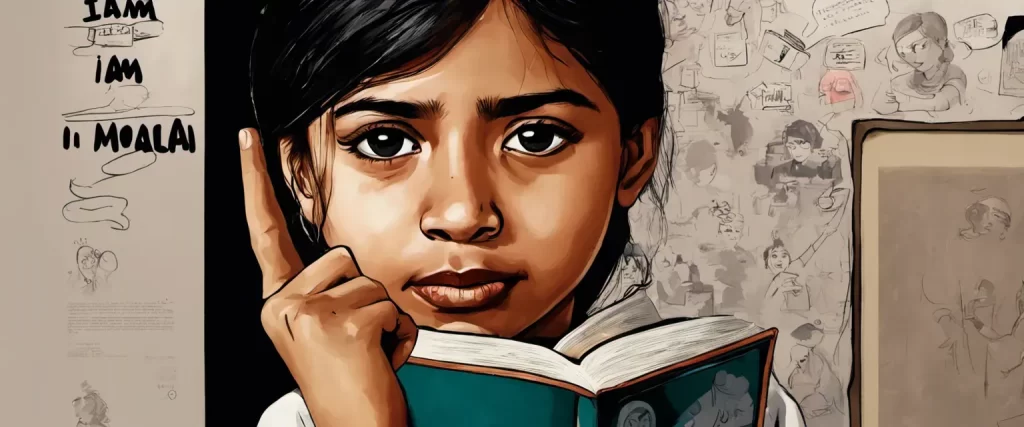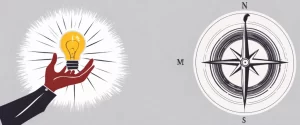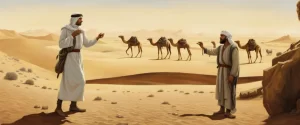——I Am Malala by Malala Yousafzai & Educated by Tara Westover
In a world marked by stark social inequalities and the pursuit of education as a catalyst for change and liberation, two remarkable memoirs have captivated readers with their gripping narratives. “I Am Malala” by Malala Yousafzai and “Educated” by Tara Westover shed light on the transformative power of education in the face of adversity. Both women defied the constraints of their circumstances and embarked on extraordinary journeys to obtain an education, ultimately challenging societal norms and transforming their lives.
I Am Malala” chronicles the extraordinary life of Malala Yousafzai, a Pakistani activist whose unyielding advocacy for girls’ education in the face of Taliban oppression led to her infamous attack in 2012. On the other hand, “Educated” delves into the life of Tara Westover, born into a fundamentalist Mormon family in rural Idaho, who managed to escape her isolated upbringing and pursue an education that eventually leads her to question the beliefs she had inherited.
This comparative study aims to explore the similarities and differences between these two awe-inspiring memoirs, assessing the impact of education and the journey of empowerment that each protagonist undergoes. By examining the resilience exhibited by Yousafzai and Westover, we can gain valuable insights into the significance of education as a transformative force, shaping their individual identities, beliefs, and contributions to society.
Throughout this study, we will delve into various aspects of their journeys, including the societal and cultural contexts that shaped their lives, the barriers and obstacles they encountered along the way, and the ways in which education played a pivotal role in their personal growth and emancipation. Additionally, we will explore the distinct writing styles employed by Yousafzai and Westover, providing an in-depth analysis of how their unique voices contribute to the effectiveness of their narratives.
By examining these two extraordinary memoirs side by side, we can not only appreciate the indomitable spirit of these women but also explore the universal themes of empowerment, resilience, and the pursuit of knowledge. The stories of Yousafzai and Westover have resonated with readers across the globe, inspiring individuals to challenge the status quo, question ingrained ideologies, and advocate for equal access to education.
Through this comparative study, we hope to shed light on the enduring power of education to transcend social barriers, transform lives, and unlock the potential within individuals to effect change on both personal and global scales. Ultimately, “I Am Malala” and “Educated” offer profound insights into the importance of education as an instrument of enlightenment and empowerment, showcasing the remarkable journeys of two extraordinary women who refused to be defined by their circumstances.
Brief Summary of Two Books
I Am Malala by Malala Yousafzai
I Am Malala” is an autobiography by Malala Yousafzai, a Pakistani activist for female education and the youngest Nobel Prize laureate. The book chronicles Malala’s journey from her childhood in the Swat Valley in Pakistan to her becoming an advocate for girls’ education globally.
Malala was raised by her father, who ran a school and encouraged her to pursue education. Despite facing threats from Taliban forces in the Swat Valley, Malala continued to attend school and advocate for education rights for girls. In 2012, at the age of 15, she was targeted by the Taliban, who attempted to assassinate her. Malala survived the attack and was eventually moved to a hospital in the UK for treatment and her safety.
“I Am Malala” describes this life-changing event and how it further motivated her to fight for girls’ education. It delves into her experiences growing up in a society with gender inequality, the importance of education in breaking cycles of poverty, and the struggle against extremist ideologies.
Throughout the book, Malala shares stories of her fight for education, her family’s support, and the challenges she faced as she became a global symbol of peace and education. She emphasizes the power of education to transform lives and the necessity of providing it to both boys and girls.
“I Am Malala” not only provides a glimpse into Malala’s incredible journey but also sheds light on the socio-political context and the importance of education for empowering individuals and creating positive change in society.
Educated by Tara Westover
“Educated” is a memoir written by Tara Westover, chronicling her journey from growing up in a strict and abusive household in rural Idaho to eventually pursuing an education at prestigious universities. The book begins by depicting her childhood in a survivalist family, isolated from the outside world, without formal education or any knowledge of the world beyond their homestead. As Tara grows older, she witnesses domestic violence and experiences intense physical and emotional abuse from her older brother, Shawn.
However, Tara’s life gradually changes when she decides to educate herself. She learns to read and eventually gains admission to Brigham Young University, where she is introduced to new perspectives and knowledge that challenge her beliefs and upbringing. Despite facing initial difficulties in adapting to the academic environment and grappling with her strained familial relationships, Tara perseveres and excels academically, winning scholarships that enable her to pursue higher education.
As Tara continues to immerse herself in learning, questioning her family’s beliefs, and confronting her traumatic past, she eventually finds the strength to break free from her family’s toxic dynamics. She goes on to study at Cambridge University, where she encounters new intellectual challenges and forms meaningful relationships.
Throughout the book, Tara explores themes of identity, the power of education, and the complex relationships between family and personal growth. She reflects on the impact that her fragmented upbringing had on her sense of self and how she was able to reconcile with her past while forging her own path. “Educated” ultimately celebrates the transformative power of education and the resilience of the human spirit.
Comparison between Two Books

Similarities in education and empowerment
Both I Am Malala and Educated tell the inspiring stories of two remarkable women who, despite facing immense challenges, manage to pursue education and empower not only themselves but also those around them. Here are some similarities in terms of education and empowerment:
1. Determination to overcome barriers: Both Malala Yousafzai and Tara Westover demonstrate an unwavering determination to pursue education, even when faced with significant obstacles. Malala defies the oppressive Taliban regime in Pakistan that restricts girls’ education, while Tara overcomes her isolated upbringing in rural Idaho without any formal education.
2. The transformative power of education: Both books emphasize how education can be transformative by broadening one’s horizons, expanding critical thinking, and fostering independence. For Malala, education is a primary tool to fight for gender equality and challenge societal norms. Tara, on the other hand, sees education as a means to escape her abusive family and gain agency over her own life.
3. The role of education in challenging societal norms: Both Malala and Tara challenge deeply ingrained societal norms through their pursuit of education. Malala advocates for girls’ education in a patriarchal society that perpetuates gender inequality, whereas Tara challenges her family’s extreme religious beliefs and academic ignorance by pursuing higher education.
4. Inspiring others through education: Both women inspire and empower others through their educational journeys. Malala becomes an international advocate for girls’ education and uses her platform to encourage millions of girls worldwide to persevere. Similarly, Tara’s educational achievements serve as an inspiration to her siblings, encouraging them to seek education and independence.
5. Education as a tool for personal growth: Both books highlight the personal growth that comes from education. Malala’s education expands her understanding of the world and strengthens her resolve to fight for justice. For Tara, education serves as an eye-opening experience, enabling her to question her upbringing, challenge her family’s beliefs, and reshape her identity.
6. Overcoming societal expectations: Both Malala and Tara face societal expectations that undermine their pursuit of education. Malala defies cultural norms that expect her to prioritize marriage and domesticity, while Tara confronts her family’s belief that education is unnecessary and even dangerous.
In summary, both I Am Malala and Educated highlight the transformative power of education and the ways in which it empowers individuals to challenge societal norms, inspire others, and overcome personal obstacles. These books remind us of the immense potential education holds to create positive change and empower individuals to shape their own destinies.
Divergences in education and empowerment
Both “I Am Malala” by Malala Yousafzai and “Educated” by Tara Westover explore the transformative power of education in the lives of the authors. While both women faced significant obstacles in their pursuit of education, their approaches to empowerment and the impact of education on their lives differ.
In “I Am Malala,” Malala Yousafzai recounts her experiences as a young activist fighting for girls’ education in Pakistan. Malala grew up in a society deeply influenced by patriarchal norms, where women’s education was often undervalued. Despite societal pressure and the threat of violence, Malala consistently advocated for her right to education and became an internationally recognized voice for gender equality and education. For Malala, education is synonymous with empowerment, freedom, and the ability to challenge systemic injustice. She embraces education as a tool not only for personal growth but also for transforming her community.
On the other hand, “Educated” by Tara Westover tells the story of a young woman raised in a strict and isolated environment by extremist parents in rural Idaho. Tara was denied access to formal education for most of her early life, as her parents viewed public schools as a threat to their way of life. However, Tara’s desire for knowledge and her relentless pursuit of education led her to break away from her family and seek education outside her insular community. For Tara, education becomes a means to liberate herself from the constraints imposed by her family and to question the oppressive beliefs she was raised with. It becomes a tool of self-discovery and empowerment as she realizes her own agency and the ability to shape her identity.
The divergence in their stories lies in the motivations driving their pursuit of education. While Malala focuses on the collective empowerment of girls and the transformative power of education on society, Tara primarily seeks personal empowerment through education, liberating herself from her oppressive upbringing. Malala’s education is rooted in a larger context of social justice and the fight for gender equality, while Tara’s education is largely an individual pursuit.
Furthermore, the impact of education manifests differently in their lives. For Malala, education ultimately leads to global recognition, activism, and advocacy for girls’ education worldwide. She becomes a symbol of hope and empowerment for girls facing similar challenges. On the other hand, for Tara, education enables her to break free from the confinement of her past and forge her own path. It empowers her to question and challenge the toxic beliefs that had been imposed on her and to build a new life based on her own values and aspirations.
In conclusion, “I Am Malala” and “Educated” highlight the significance of education in empowering individuals and transforming lives. Malala’s story emphasizes education as a tool for challenging systemic oppression and advocating for social change. Tara’s narrative underscores education as a means for personal liberation and self-discovery. Both books demonstrate that education has the power to break down barriers, inspire change, and enable individuals to realize their potential.

Conclusion
Both “I Am Malala” by Malala Yousafzai and “Educated” by Tara Westover are highly acclaimed and impactful books. Ultimately, the choice of which book is more worthy of reading depends on your personal preferences and interests.
“I Am Malala” is an autobiography that tells the story of Malala Yousafzai, a Pakistani girl who fought for girls’ education and survived an assassination attempt by the Taliban. The book provides insights into her journey, her struggles with the patriarchal society, and her unyielding determination to advocate for educational rights. “I Am Malala” offers a powerful perspective on the importance of girls’ education and the resilience of the human spirit.
On the other hand, “Educated” is a memoir by Tara Westover, who grew up in a strict and abusive household in rural Idaho and went on to earn a PhD from Cambridge University. The book explores themes of education, identity, and self-discovery. “Educated” is a captivating and thought-provoking account of Westover’s journey, as she breaks free from her isolated upbringing and discovers the power of education to transform lives.
Both books highlight the transformative power of education and personal resilience, but their content and writing styles are different. If you are interested in stories of activism and the pursuit of girls’ education in challenging circumstances, “I Am Malala” may be the more suitable choice for you. On the other hand, if you are intrigued by stories of personal growth and the impact of education on one’s life, “Educated” might be the better option.
Ultimately, both books offer unique and important perspectives, so it may be worth considering reading both if you have the time and interest.



